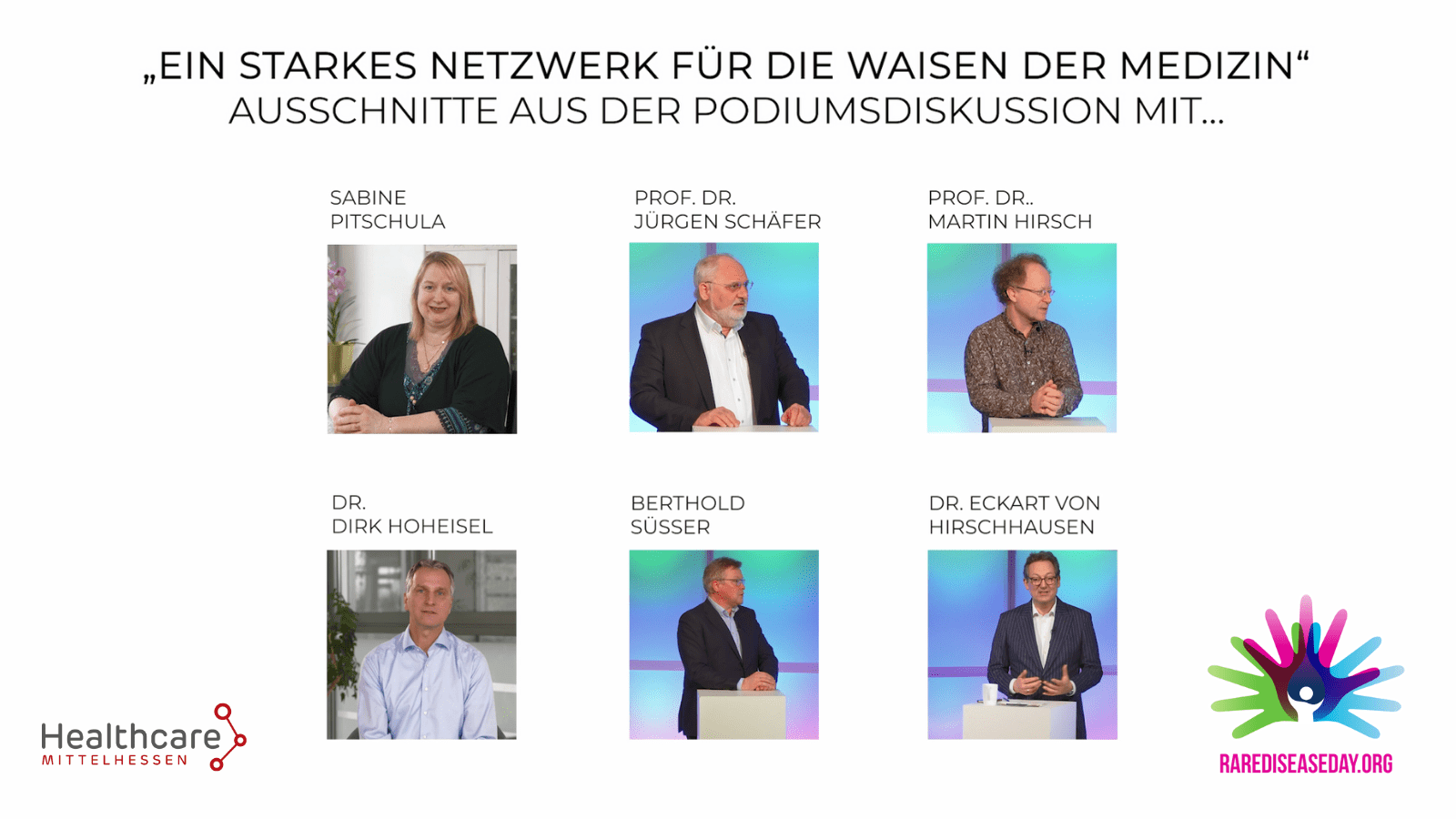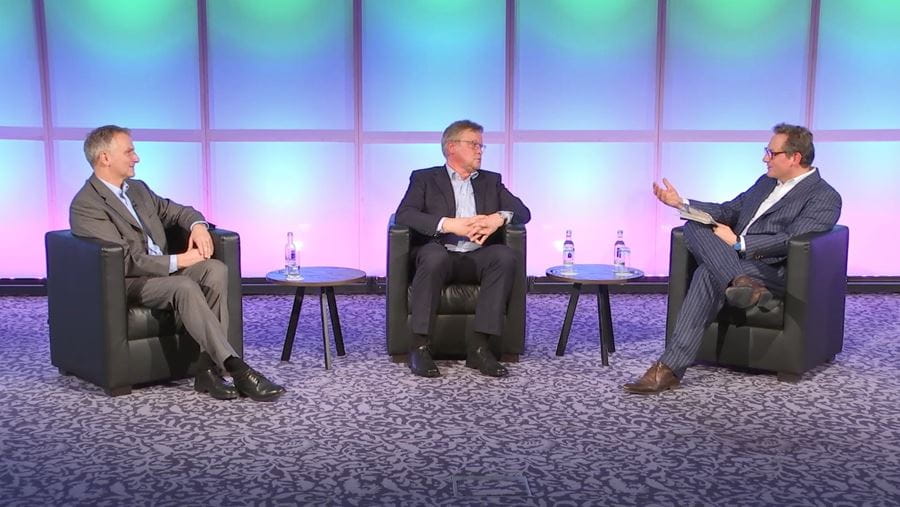“A Strong Network for the Orphans of Medicine” – under this motto, affected individuals, renowned scientists and representatives of CSL Behring and of CSL Plasma accepted Healthcare Mittelhessen’s invitation to jointly raise awareness for rare diseases on 28 February, which is Rare Disease Day.
A network of science and business
The event was hosted by Dr. Eckart von Hirschhausen, a popular TV presenter and physician. He spoke with Sabine Pitschula, primary immunodeficiency patient, Prof. Dr. Jürgen Schäfer, head of the Center for Unrecognized and Rare Diseases (Zentrum für unerkannte und seltene Erkrankungen, ZusE) at the University Clinic Giessen and Marburg (UKGM), who is also known as “the German Dr. House”, and Prof. Dr. Martin Hirsch, Professor of Artificial Intelligence (AI) in Medicine at Philipps-Universität Marburg, about their experiences and challenges in research. Dr. Dirk Hoheisel, Vice President and General Manager Commercial Operations Germany/Austria/Emerging Europe at CSL Behring, and Berthold Süsser, Managing Director of CSL Plasma GmbH, participated as company representatives in the roundtable discussion, explaining the complexity and challenges in the production of therapies for rare diseases. With the goal of pooling the competencies in the field of rare diseases in Central Hesse and being able to help patients better in the future, Healthcare Mittelhessen, as the initiator, brought the various stakeholders together for the exchange.
How trust in medicine is lost
To kick off the event, Sabine Pitschula, a patient with primary immunodeficiency, reported on her long odyssey to the right diagnosis. Shimmying from doctor’s appointment to doctor’s appointment, she gradually lost her trust in medicine. “Every doctor looked at his specialty, but none looked at my symptoms as a whole,” she recounted. It was not until a few years ago that she finally met an immunologist who could correctly interpret her symptoms.
Medical detective work takes time
Prof. Dr. Jürgen Schäfer, head of the Center for Unrecognized and Rare Diseases (Zentrum für unerkannte und seltene Erkrankungen, ZusE) at the University Clinic Giessen and Marburg (UKGM), and his team search for correct diagnoses of unclear clusters of symptoms every day. Every single case is meticulously investigated at ZusE, and Schäfer explains why: “Patients don’t care whether the disease is rare or common. What matters to them is that they get help.” The most important factor in this is the time needed to study preliminary reports and undertake adequate investigations – but unfortunately, time is a rare commodity, especially in medicine.
Artificial intelligence to support diagnostics
At ZuSe, computer technology and artificial intelligence play key roles in supporting diagnoses. Prof. Dr. Martin Hirsch, who is Professor of Artificial Intelligence (AI) in Medicine at Philipps-Universität Marburg, is an expert in this field. “Medicine today is latently overtaxing the capabilities of our brains,” Hirsch believes. He further explains, “Humans tend to have what’s called confirmation bias, which means they first confirm their own assumptions and expectations and block out the improbable. Computers don’t do that.” With the use of artificial intelligence, the state of affairs and medical records concerning a patient can be clarified more quickly, leaving the doctor more time for the patient. “So in the end, AI can make medicine more human again,” Hirsch adds.
Blood plasma – a valuable raw material
In order to save and improve patients’ lives, we at CSL Behring are constantly researching innovative therapies and treatment options. For many of these, including immunoglobulins, blood plasma is the basis. “The use of immunoglobulins has increased extremely in recent years. Many drugs in this group can help people with serious diseases. Therefore, I assume that blood plasma drugs (...) will continue to play an important role in the coming decades,” explains Dirk Hoheisel, Vice President and General Manager Commercial Operations Germany/Austria/Emerging Europe, in this context. Berthold Süsser, Managing Director of CSL Plasma GmbH, also confirms this: “Plasma is a life-saving raw material. However, plasma donation is far less known than blood donation. It’s important that we work together to raise awareness about plasma donation, because more than one million children and adults worldwide need medicines made from plasma.”
Healthcare Mittelhessen is making the most exciting insights from the panel discussion available on its website and its YouTube channel (video in German).



